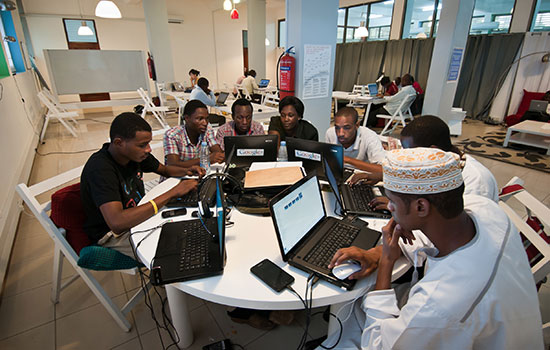In a recent conversation with CNBC Africa’s Kenneth Obama, Arunma Oteh, the Vice President and Treasurer of the World Bank, shed light on the burgeoning digital economy and its implications for Africa. Oteh commended the African Development Bank for emphasizing the acceleration of industrialization.
She believes that the African continent should focus on this, especially given the projection that by 2020, 26% of the global GDP will be driven by the digital economy. With a youthful population and the need for regional integration, Oteh sees the digital economy as the key to unlocking Africa’s potential. Embracing digitalization will democratize economic opportunities and pave the way for a brighter future.
One of the standout initiatives supported by multilateral agencies like the World Bank in Africa is the Digital Identity Project. Drawing inspiration from India’s Aadhaar system, this project aims to provide a national identity system. Such a system is crucial as it brings previously excluded individuals into the economic fold.
By giving them an identity, they can access services, receive payments, and participate more actively in the economy. This initiative is already making waves in Burkina Faso, Côte d’Ivoire, Niger, and Nigeria.
Innovative financing models are the need of the hour. Oteh lamented that only about $100 million funded startups in Africa last year. Drawing parallels with Israel, which supports startups significantly, she emphasized the need for patient, long-term capital. This capital should support the ecosystem, allowing the digital sector to flourish.
Large companies can also play a pivotal role by partnering with young entrepreneurs, providing them with the necessary cash flow and mentorship.
Building a Robust Ecosystem
Oteh firmly believes that a robust ecosystem led by top leadership is essential for a thriving digital economy. This ecosystem should encompass capital markets, skills development, innovation hubs, and infrastructure.
Emphasis on STEM (Science, Technology, Engineering, and Mathematics) education is vital to foster innovation. Additionally, governments must invest in infrastructure, like broadband access, to ensure the youth can harness the power of the digital world.
The rise of blockchain and cryptocurrencies has posed challenges for regulators worldwide. However, Oteh urges a focus on the benefits of blockchain, such as its potential in trade finance and property rights.
While risks are associated with these technologies, adopting a mindset of opportunity and creating a supportive environment is critical.
The pace of technological change poses challenges for regulators. While the concerns are valid, Oteh believes they are not restricted to Africa. The approach should not be to prevent technological advancements but to engage with stakeholders and understand the risks. It’s about striking the right balance.
In wrapping up, the dialogue between CNBC Africa’s Kenneth Obama and Arunma Oteh offers not just a glimpse but a comprehensive vision of Africa’s digital horizon. The emphasis is clear: Africa stands on the cusp of a digital revolution that could redefine its socio-economic landscape.
By harnessing the power of the digital economy, the continent has the potential to leapfrog traditional developmental stages, addressing long-standing challenges and creating unprecedented opportunities for its youthful population. However, the journey ahead requires strategic investments, innovative approaches, and a collaborative spirit.
Regulators, entrepreneurs, and educators must come together to craft a uniquely African digital narrative, drawing lessons from global successes and failures. As the world watches, Africa has the chance to set a precedent, demonstrating how digital transformation can be both inclusive and transformative.
Read more Insightful analysis by Tumaini Masegese.

